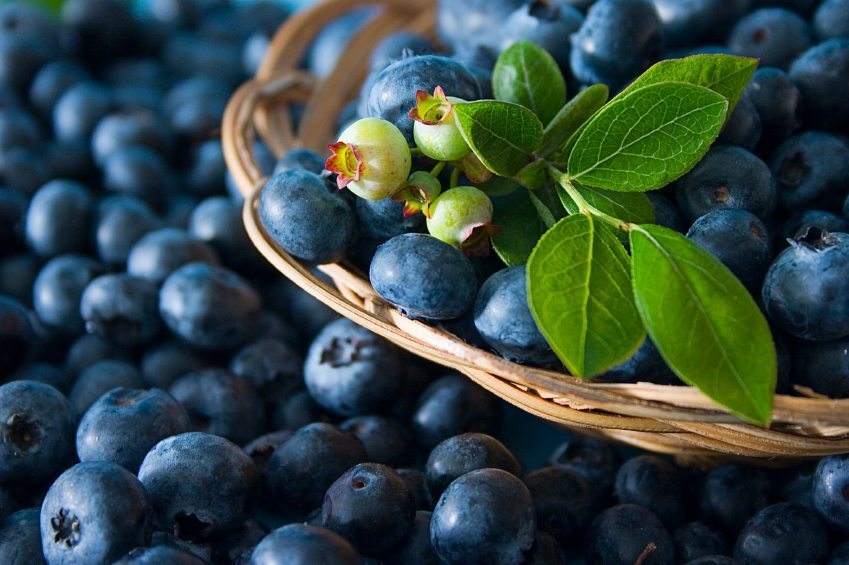
Besides helping the nervous system, aiding brain health, and contributing to healthy, glowing, skin, studies have shown that eating blueberries might also help with memory. Especially beneficial for older individuals or those afflicted with Alzheimer’s disease, blueberries might be able to help us retain information as we get older and our memory doesn’t work like it used to.
SEE ALSO 10 Perfectly Healthy Blueberry Pancake Recipes
For being such a small fruit, blueberries have a large amount of health benefits. Scientific American, a science website, states that “emerging research suggest that compounds in blueberries known as flavonoids may improve memory, learning and general cognitive function, including reasoning skills, decision making, verbal comprehension, and numerical ability.”
A 2010 study published in the Journal of Agricultural and Food Chemistry “looked at the effects of drinking wild blueberry juice on memory decline in nine adults in their 70s,” WebMD, a medical information website, states. Each participant drank “about two and a half cups each day of blueberry juice made from commercially available frozen wild blueberries for 12 weeks. A comparison group of seven older adults drank [… a] placebo for the same time period,” Web MD further explains. Researchers then conducted memory tests, and it was found that the adults “who drank blueberry juice showed significant improvement on learning and memory tests compared to the placebo group,” Web MD concludes. Those who drank blueberry juice performed better on the test, but is this enough to determine that blueberries are a memory miracle? Is it too good to be true?
SEE ALSO Does Meditation Make You Smarter?
Another study published in Annals of Neurology found that “Women with the highest intake of berries appeared to delay cognitive aging by up to 2.5 years,” Health, a medical information website, explains. The study proved that even if you aren’t 70 years old, you should still be eating blueberries to help improve your memory as you age. Blueberries are “rich in substances known as flavonoids. Flavonoids help protect the body’s cells from damage and reduce inflammation,” Health states. Additionally, berries also “contain a particular flavonoid called anthocyanidins,” Health further explains. Anthocyanidins not only give berries their color, but are also involved in improving memory, and they “can cross the blood-brain barrier and […] tend to locate in the areas of the brain responsible for memory and learning,” Health points out. Next time you look at a blueberry, pay attention to the dark pigment— it is responsible for giving your memory a boost.
Verdict: Fact. Blueberries have been proven to help improve memory. Add some berries to your cereal or yogurt or pack some for a mid-afternoon snack at work. Combine a serving of blueberries (about half a cup) with granola for a nutritious, healthy lunch. This year, when blueberry season comes around again—in New York, it’s between mid-June and September—take a ride to a local farm stand and enjoy a day of blueberry picking that will also give your brain a boost.
For more on Nutrition, check out our features here.
How do you make sure to stay sharp?
Oh man, I just saw the movie Still Alice about the woman with Alzheimer’s so I am inspired to do whatever I can for my memory! Fortunately I love blueberries.
Great Article. I write about people who quit marijuana and one of the major hurdles that people face is how to improve their memory once they have quit. I’ll be sure to share the benefits of blueberry juice to everyone!
[…] SEE ALSO Can A Handful Of Blueberries A Day Really Help Your Memory? […]